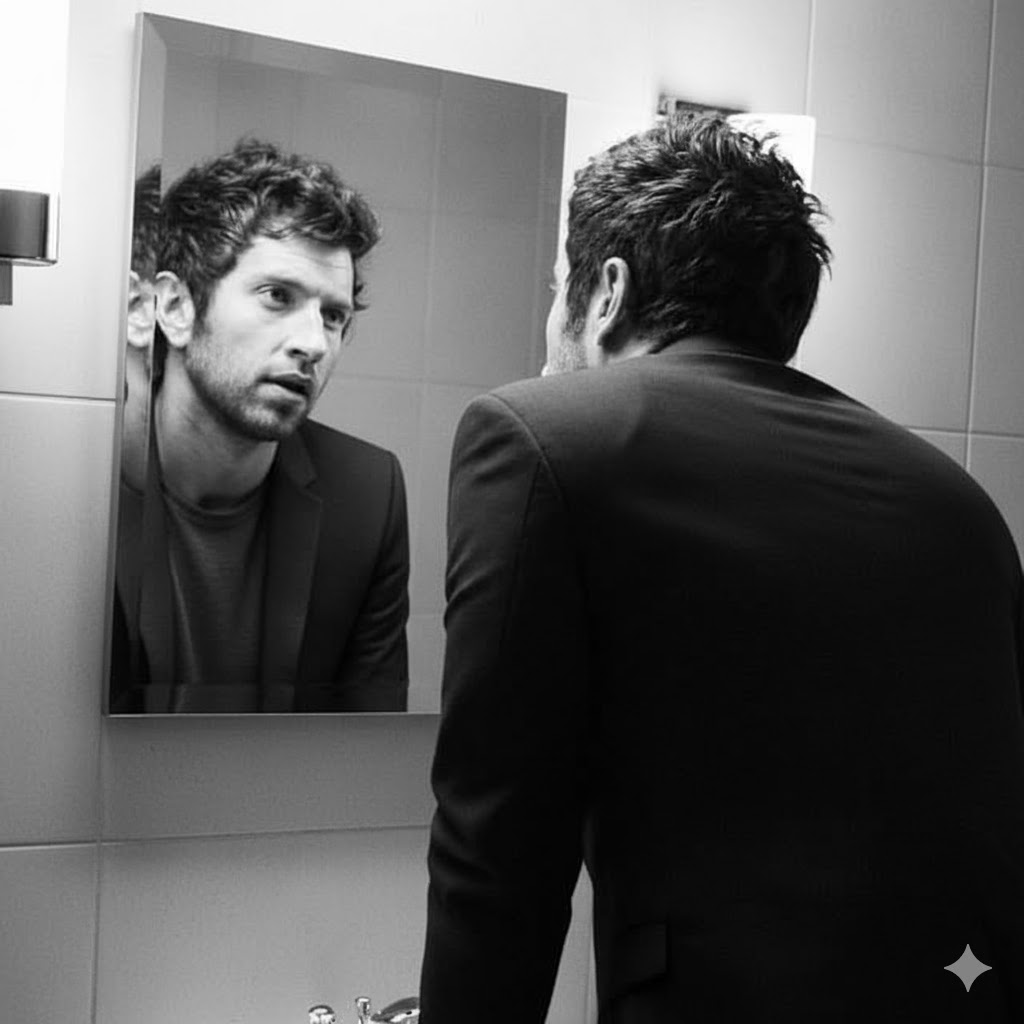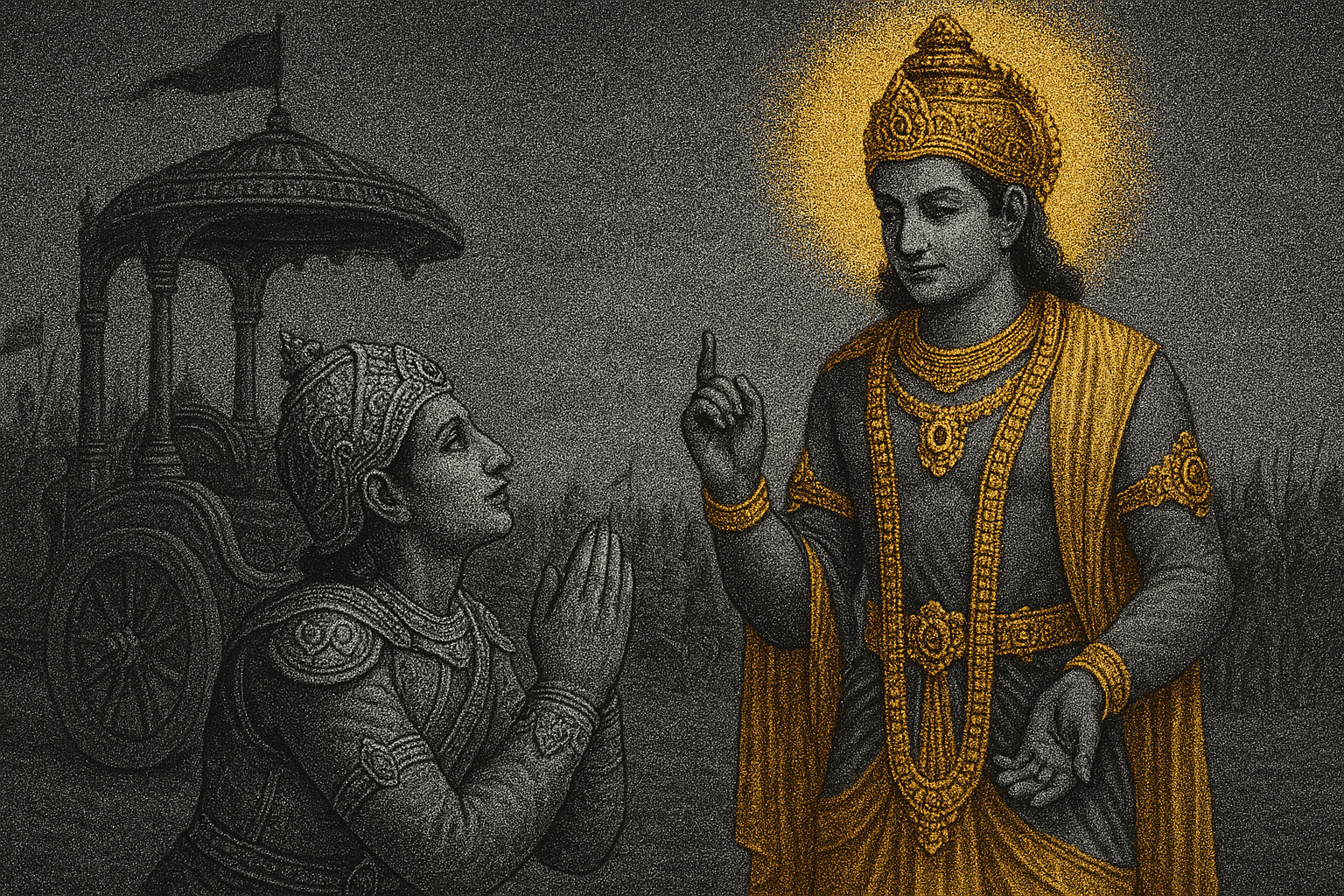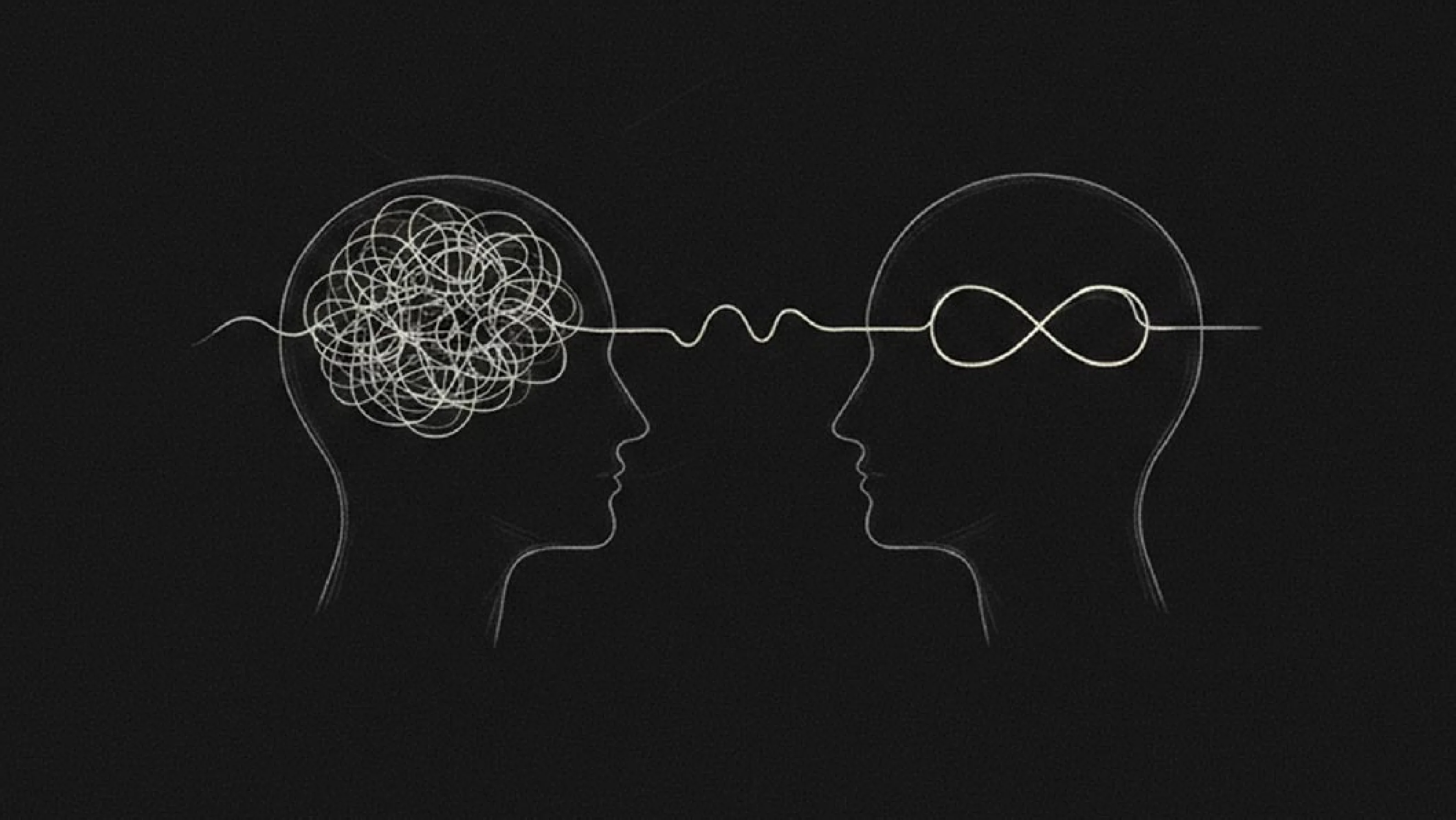Smart but stuck: When intelligence alone falls short of cracking the startup code
.svg)
Learn why smart people stall, how to break the perfectionism loop, and why acting at 70% certainty beats waiting for 100%
If this headline caught your attention, you probably belong to the ‘smart-but-stuck’ tribe of intelligent people who are looking for a way out. And you will continue reading this because you are willing to learn, a basic trait among smart people. Well, here’s the key to break free. A small gap separates success from failure for a startup's leadership. It’s called the ‘action gap’, and it explains why intelligent individuals do not always become successful startup founders, whereas their less cognitively gifted peers may excel. Action gap is the tendency to get stuck in planning or theorising rather than execution. It is this gap which many intelligent people, prone to over-analysis, risk aversion, or perfectionism, fail to bridge, making them less likely to act on their ideas.
I’ve watched this play out up close in leadership teams, with people falling into two broad categories. The first kind makes progress before the meeting ends. They throw half-baked ideas into the world, test them, and adapt. The second category of people leave the meetings with perfect notes, have sharper questions, but build nothing.
Both are brilliant. Both care about their goals. But only one delivers.
The “action-biased” group proposes, tests, and iterates through three solutions, while the “analytical” group is still busy refining the problem statement. What fascinated me most is that their credentials, IQs, and domain expertise are nearly identical. The difference isn’t intelligence but orientation.
Learn why smart people stall, how to break the perfectionism loop, and why acting at 70% certainty beats waiting for 100%
If this headline caught your attention, you probably belong to the ‘smart-but-stuck’ tribe of intelligent people who are looking for a way out. And you will continue reading this because you are willing to learn, a basic trait among smart people. Well, here’s the key to break free. A small gap separates success from failure for a startup's leadership. It’s called the ‘action gap’, and it explains why intelligent individuals do not always become successful startup founders, whereas their less cognitively gifted peers may excel. Action gap is the tendency to get stuck in planning or theorising rather than execution. It is this gap which many intelligent people, prone to over-analysis, risk aversion, or perfectionism, fail to bridge, making them less likely to act on their ideas.
I’ve watched this play out up close in leadership teams, with people falling into two broad categories. The first kind makes progress before the meeting ends. They throw half-baked ideas into the world, test them, and adapt. The second category of people leave the meetings with perfect notes, have sharper questions, but build nothing.
Both are brilliant. Both care about their goals. But only one delivers.
The “action-biased” group proposes, tests, and iterates through three solutions, while the “analytical” group is still busy refining the problem statement. What fascinated me most is that their credentials, IQs, and domain expertise are nearly identical. The difference isn’t intelligence but orientation.

Brilliance also fuels self-doubt
Psychologist Julius Kuhl’s Action Control Theory explains this contradiction. Action-oriented people translate intention into movement. State-oriented people stay stuck in thought, paralysed by overanalysis, rumination, or the need for more clarity. In startups, that difference decides who compounds experience and who collects plans.
Intelligence is supposed to be an advantage. So why do so many brilliant people watch from the side lines while their less-gifted peers lap them?
Because the same cognitive horsepower that produces brilliance also fuels overthinking, self-doubt, and inaction. The gap between cognitive ability and entrepreneurial action is shaped by psychological, emotional, and personality factors that go beyond intelligence. Research shows that raw intelligence explains only 23% of professional success. The rest comes from behavioural and emotional variables, the things smart people often underestimate.
Let’s unpack the traps that turn intellect into inertia and how the world’s best performers break free.

Brilliance also fuels self-doubt
Psychologist Julius Kuhl’s Action Control Theory explains this contradiction. Action-oriented people translate intention into movement. State-oriented people stay stuck in thought, paralysed by overanalysis, rumination, or the need for more clarity. In startups, that difference decides who compounds experience and who collects plans.
Intelligence is supposed to be an advantage. So why do so many brilliant people watch from the side lines while their less-gifted peers lap them?
Because the same cognitive horsepower that produces brilliance also fuels overthinking, self-doubt, and inaction. The gap between cognitive ability and entrepreneurial action is shaped by psychological, emotional, and personality factors that go beyond intelligence. Research shows that raw intelligence explains only 23% of professional success. The rest comes from behavioural and emotional variables, the things smart people often underestimate.
Let’s unpack the traps that turn intellect into inertia and how the world’s best performers break free.

Brilliance also fuels self-doubt
Psychologist Julius Kuhl’s Action Control Theory explains this contradiction. Action-oriented people translate intention into movement. State-oriented people stay stuck in thought, paralysed by overanalysis, rumination, or the need for more clarity. In startups, that difference decides who compounds experience and who collects plans.
Intelligence is supposed to be an advantage. So why do so many brilliant people watch from the side lines while their less-gifted peers lap them?
Because the same cognitive horsepower that produces brilliance also fuels overthinking, self-doubt, and inaction. The gap between cognitive ability and entrepreneurial action is shaped by psychological, emotional, and personality factors that go beyond intelligence. Research shows that raw intelligence explains only 23% of professional success. The rest comes from behavioural and emotional variables, the things smart people often underestimate.
Let’s unpack the traps that turn intellect into inertia and how the world’s best performers break free.
Smart but stuck: When intelligence alone falls short of cracking the startup code
.svg)
Learn why smart people stall, how to break the perfectionism loop, and why acting at 70% certainty beats waiting for 100%
If this headline caught your attention, you probably belong to the ‘smart-but-stuck’ tribe of intelligent people who are looking for a way out. And you will continue reading this because you are willing to learn, a basic trait among smart people. Well, here’s the key to break free. A small gap separates success from failure for a startup's leadership. It’s called the ‘action gap’, and it explains why intelligent individuals do not always become successful startup founders, whereas their less cognitively gifted peers may excel. Action gap is the tendency to get stuck in planning or theorising rather than execution. It is this gap which many intelligent people, prone to over-analysis, risk aversion, or perfectionism, fail to bridge, making them less likely to act on their ideas.
I’ve watched this play out up close in leadership teams, with people falling into two broad categories. The first kind makes progress before the meeting ends. They throw half-baked ideas into the world, test them, and adapt. The second category of people leave the meetings with perfect notes, have sharper questions, but build nothing.
Both are brilliant. Both care about their goals. But only one delivers.
The “action-biased” group proposes, tests, and iterates through three solutions, while the “analytical” group is still busy refining the problem statement. What fascinated me most is that their credentials, IQs, and domain expertise are nearly identical. The difference isn’t intelligence but orientation.

Resonating with this philosophy?
Join the smartest founders mastering the inner game to face the unknown. Read by YC & Sequoia.

Karma Yoga and entrepreneurial daring

Indian philosophy distinctly emphasises the primacy of action over mere knowledge or contemplation, capturing precisely why boldness and effort matter more than intellect alone for achievement. The Bhagavad Gita’s concept of karma yoga, or learning by doing, extols experimentation and growth through trial and error, not perfection through thought alone. It asserts that knowledge must lead to committed, selfless action, with courage and determination valued above intellectual hesitation. Krishna is said to have instructed Arjuna that contemplation and analysis are meaningful only when they inspire decisive, fearless action; otherwise, they become impediments to fulfilment and progress.
The Indian philosophy deeply captures and advocates that intellectually gifted individuals may contemplate, but only those with daring, resilience, and purposeful action effect change and emerge as winners.
1. The perfectionism–procrastination loop
But that vision also becomes their prison as they get stuck in planning or theorising rather than execution.
Jeff Bezos saw this early. At Amazon, he instituted the 70% Rule: make decisions when you have roughly 70% of the information you wish you had. “If you wait for 90%,” he said, “you’re probably being slow.” The remaining 30% arrives only through action.
Research confirms what Bezos intuited. Maladaptive perfectionism, which is imperfection or judgment, correlates directly with chronic procrastination. People with perfectionistic concerns spend more time polishing plans than pursuing them. This explains the irony of the smart person’s curse: the ability to imagine what could be prevents creating what is.
2. The analysis-paralysis trap
Reed Hastings faced this at Netflix’s turning point. The data on streaming was incomplete, the costs were massive, and the risks were obvious. A purely rational model said “wait.” Hastings acted anyway, knowing that clarity arrives only after commitment.

Blockbuster analysed; Netflix acted.
Cognitive science backs this up: once you exceed five or six variables, decision quality declines as data volume increases. “More information” feels like progress, but it’s often procrastination disguised as diligence.
Excessive need for certainty can paralyse even the most gifted minds because wisdom is sterile without action, and true intelligence culminates in bold, disciplined doing, not endless contemplation.
Smart people weaponise analysis, but they also mistake thought for traction.
Social media has turned comparison into a 24/7 paralysis engine. A founder scrolls LinkedIn and sees twenty funding announcements before breakfast. The brain reads this as everyone is winning but me. Research shows professionals who consume more peer updates are more likely to experience impostor syndrome and less likely to pursue new opportunities.
The smarter the mind, the more elaborate the rationalisation. You don’t just feel behind, but you build a convincing thesis for why others are ahead.
If you follow 500 people, and each posts one achievement a month, your feed delivers 16 visible “wins” daily, while your own visible wins might come monthly. The perceived success ratio becomes 500:1, feeding paralysis.
4. The impostor phenomenon
Roughly 70% of high achievers report impostor feelings. Even Sheryl Sandberg admitted that every test, every presentation came with a quiet fear of being “found out.”
The irony: the smarter you are, the more you understand what you don’t know. Awareness expands faster than confidence. Research shows impostor feelings create a feedback loop whereby over-preparation leads to success, which is then attributed to luck, reinforcing self-doubt.
Intelligence magnifies this loop because it gives you the tools to convince yourself you’re not enough.
5. The intelligence- identity trap
Children praised for being “smart” instead of for “effort” grow up avoiding risk. Failure threatens their identity.
When Satya Nadella became CEO of Microsoft, he found a company full of “know-it-alls.” Brilliant minds, stuck defending their genius. He reframed the culture around “learn-it-alls.” Curiosity over certainty. Growth over ego.
The shift was cultural alchemy. Collaboration replaced competition. Microsoft’s market cap rose from $300B to over $2T.
Neuroscience supports this: growth-mindset brains show higher activation in learning regions after mistakes. Fixed-mindset brains shut down.
Smart people stay stuck when “being right” matters more than “getting better.”
6. The prestige trap
Prestige is the most elegant form of stagnation.
I’ve seen countless Ivy-League MBAs who dream of building something, but remain at McKinsey or Goldman, trapped by salary, safety, and status. They call it “one more year of experience.” It’s often one more year of fear.

the golden-handcuff effect.
Sociologists call this “the golden-handcuff effect.” Prestige offers protection from external judgment, but suffocates internal drive. The smartest people end up solving meaningless problems beautifully.
Breaking free: What works
Karma Yoga and entrepreneurial daring

Indian philosophy distinctly emphasises the primacy of action over mere knowledge or contemplation, capturing precisely why boldness and effort matter more than intellect alone for achievement. The Bhagavad Gita’s concept of karma yoga, or learning by doing, extols experimentation and growth through trial and error, not perfection through thought alone. It asserts that knowledge must lead to committed, selfless action, with courage and determination valued above intellectual hesitation. Krishna is said to have instructed Arjuna that contemplation and analysis are meaningful only when they inspire decisive, fearless action; otherwise, they become impediments to fulfilment and progress.
The Indian philosophy deeply captures and advocates that intellectually gifted individuals may contemplate, but only those with daring, resilience, and purposeful action effect change and emerge as winners.
1. The perfectionism–procrastination loop
But that vision also becomes their prison as they get stuck in planning or theorising rather than execution.
Jeff Bezos saw this early. At Amazon, he instituted the 70% Rule: make decisions when you have roughly 70% of the information you wish you had. “If you wait for 90%,” he said, “you’re probably being slow.” The remaining 30% arrives only through action.
Research confirms what Bezos intuited. Maladaptive perfectionism, which is imperfection or judgment, correlates directly with chronic procrastination. People with perfectionistic concerns spend more time polishing plans than pursuing them. This explains the irony of the smart person’s curse: the ability to imagine what could be prevents creating what is.
2. The analysis-paralysis trap
Reed Hastings faced this at Netflix’s turning point. The data on streaming was incomplete, the costs were massive, and the risks were obvious. A purely rational model said “wait.” Hastings acted anyway, knowing that clarity arrives only after commitment.

Blockbuster analysed; Netflix acted.

Blockbuster analysed; Netflix acted.
Cognitive science backs this up: once you exceed five or six variables, decision quality declines as data volume increases. “More information” feels like progress, but it’s often procrastination disguised as diligence.
Excessive need for certainty can paralyse even the most gifted minds because wisdom is sterile without action, and true intelligence culminates in bold, disciplined doing, not endless contemplation.
Smart people weaponise analysis, but they also mistake thought for traction.
Social media has turned comparison into a 24/7 paralysis engine. A founder scrolls LinkedIn and sees twenty funding announcements before breakfast. The brain reads this as everyone is winning but me. Research shows professionals who consume more peer updates are more likely to experience impostor syndrome and less likely to pursue new opportunities.
The smarter the mind, the more elaborate the rationalisation. You don’t just feel behind, but you build a convincing thesis for why others are ahead.
If you follow 500 people, and each posts one achievement a month, your feed delivers 16 visible “wins” daily, while your own visible wins might come monthly. The perceived success ratio becomes 500:1, feeding paralysis.
4. The impostor phenomenon
Roughly 70% of high achievers report impostor feelings. Even Sheryl Sandberg admitted that every test, every presentation came with a quiet fear of being “found out.”
The irony: the smarter you are, the more you understand what you don’t know. Awareness expands faster than confidence. Research shows impostor feelings create a feedback loop whereby over-preparation leads to success, which is then attributed to luck, reinforcing self-doubt.
Intelligence magnifies this loop because it gives you the tools to convince yourself you’re not enough.
5. The intelligence- identity trap
Children praised for being “smart” instead of for “effort” grow up avoiding risk. Failure threatens their identity.
When Satya Nadella became CEO of Microsoft, he found a company full of “know-it-alls.” Brilliant minds, stuck defending their genius. He reframed the culture around “learn-it-alls.” Curiosity over certainty. Growth over ego.
The shift was cultural alchemy. Collaboration replaced competition. Microsoft’s market cap rose from $300B to over $2T.
Neuroscience supports this: growth-mindset brains show higher activation in learning regions after mistakes. Fixed-mindset brains shut down.
Smart people stay stuck when “being right” matters more than “getting better.”
6. The prestige trap
Prestige is the most elegant form of stagnation.
I’ve seen countless Ivy-League MBAs who dream of building something, but remain at McKinsey or Goldman, trapped by salary, safety, and status. They call it “one more year of experience.” It’s often one more year of fear.

the golden-handcuff effect.
Sociologists call this “the golden-handcuff effect.” Prestige offers protection from external judgment, but suffocates internal drive. The smartest people end up solving meaningless problems beautifully.
1. The perfectionism–procrastination loop
But that vision also becomes their prison as they get stuck in planning or theorising rather than execution.
Jeff Bezos saw this early. At Amazon, he instituted the 70% Rule: make decisions when you have roughly 70% of the information you wish you had. “If you wait for 90%,” he said, “you’re probably being slow.” The remaining 30% arrives only through action.
Research confirms what Bezos intuited. Maladaptive perfectionism, which is imperfection or judgment, correlates directly with chronic procrastination. People with perfectionistic concerns spend more time polishing plans than pursuing them. This explains the irony of the smart person’s curse: the ability to imagine what could be prevents creating what is.
2. The analysis-paralysis trap
Reed Hastings faced this at Netflix’s turning point. The data on streaming was incomplete, the costs were massive, and the risks were obvious. A purely rational model said “wait.” Hastings acted anyway, knowing that clarity arrives only after commitment.

Blockbuster analysed; Netflix acted.
Cognitive science backs this up: once you exceed five or six variables, decision quality declines as data volume increases. “More information” feels like progress, but it’s often procrastination disguised as diligence.
Excessive need for certainty can paralyse even the most gifted minds because wisdom is sterile without action, and true intelligence culminates in bold, disciplined doing, not endless contemplation.
Smart people weaponise analysis, but they also mistake thought for traction.
Social media has turned comparison into a 24/7 paralysis engine. A founder scrolls LinkedIn and sees twenty funding announcements before breakfast. The brain reads this as everyone is winning but me. Research shows professionals who consume more peer updates are more likely to experience impostor syndrome and less likely to pursue new opportunities.
The smarter the mind, the more elaborate the rationalisation. You don’t just feel behind, but you build a convincing thesis for why others are ahead.
If you follow 500 people, and each posts one achievement a month, your feed delivers 16 visible “wins” daily, while your own visible wins might come monthly. The perceived success ratio becomes 500:1, feeding paralysis.
6. The prestige trap
Prestige is the most elegant form of stagnation.
I’ve seen countless Ivy-League MBAs who dream of building something, but remain at McKinsey or Goldman, trapped by salary, safety, and status. They call it “one more year of experience.” It’s often one more year of fear.

the golden-handcuff effect.
Sociologists call this “the golden-handcuff effect.” Prestige offers protection from external judgment, but suffocates internal drive. The smartest people end up solving meaningless problems beautifully.
Indian philosophy distinctly emphasises the primacy of action over mere knowledge or contemplation, capturing precisely why boldness and effort matter more than intellect alone for achievement. The Bhagavad Gita’s concept of karma yoga, or learning by doing, extols experimentation and growth through trial and error, not perfection through thought alone. It asserts that knowledge must lead to committed, selfless action, with courage and determination valued above intellectual hesitation. Krishna is said to have instructed Arjuna that contemplation and analysis are meaningful only when they inspire decisive, fearless action; otherwise, they become impediments to fulfilment and progress.
The Indian philosophy deeply captures and advocates that intellectually gifted individuals may contemplate, but only those with daring, resilience, and purposeful action effect change and emerge as winners.
The bottom line
Willingness to embrace risk, openness to adventure, and preference for the ‘unknown’ significantly distinguish entrepreneurs from those who are merely cognitively skilled. Add to it emotional intelligence, which also plays a crucial role in surpassing the rational urge to reason out raw intelligence in entrepreneurial success, with traits like perseverance, self-motivation, and resilience marking the daring founders who "take the crown". Wisdom is sterile without action, and true intelligence culminates in bold, disciplined doing, not endless contemplation.
Willingness to embrace risk, openness to adventure, and preference for the ‘unknown’ significantly distinguish entrepreneurs from those who are merely cognitively skilled. Add to it emotional intelligence, which also plays a crucial role in surpassing the rational urge to reason out raw intelligence in entrepreneurial success, with traits like perseverance, self-motivation, and resilience marking the daring founders who "take the crown". Wisdom is sterile without action, and true intelligence culminates in bold, disciplined doing, not endless contemplation.
The cumulative effect:
.svg)

.svg)
The cumulative effect:
They won because they acted, iterated, and learned faster.
- Performance = Talent × Effort².
- Effort compounds, but not alone.
Stop waiting to be ready. Start acting your way to clarity.
Your intelligence is a tool. Don’t let it become a trap.
To be continued…
A small favor...
I don't run ads. If this brought clarity, the biggest favor you can do is subscribe below.

.png)



.svg)

.svg)

